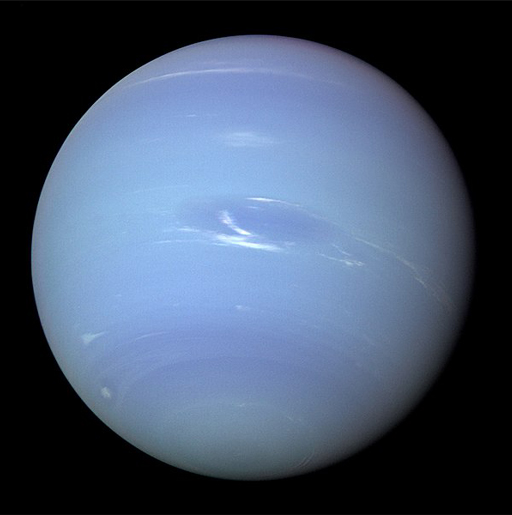1 Mathematics
The word ‘mathematics’ is derived from the ancient Greek word μάθημα (máthēma), which means knowledge, study and learning. Traditionally, mathematics as a subject has been very closely associated with the sciences, particularly physics. You’ll find mathematics and natural sciences under the same umbrella at many universities (e.g., the Open University’s STEM faculty, which stands for Science, Technology, Engineering and Mathematics).
Many advances in mathematics throughout history were inspired by the study of natural processes. Just think of Newton’s laws of motion and the development of calculus, as discussed earlier in this course. The reverse is also true; an example of this was seen in Week 3, with the existence of particular elementary particles being predicted by mathematical symmetry.
Another classic example came from irregularities in the orbit of the planet Uranus observed in the 1840s. Assuming that Newton’s laws still correctly describe planetary motion at such large distances, the orbit of Uranus could only be explained by the presence of another planet. Its existence and position in the sky were predicted by the laws of planetary motion. The discovery of the planet Neptune in 1846 slotted in perfectly with these mathematical predictions.
Despite such close links, mathematics itself is not considered a ‘natural science’, which the Oxford English Dictionary (OED) defines as:
The branch of knowledge that deals with the natural or physical world; a life science or physical science, such as biology, chemistry, physics, or geology; (in plural) these sciences collectively, in contrast to the social sciences and human sciences.
Nevertheless, the close link is apparent when looking at the definition for ‘mathematics’, which reads:
Originally: (a collective term for) geometry, arithmetic, and certain physical sciences involving geometrical reasoning, such as astronomy and optics; spec. the disciplines of the quadrivium collectively. In later use: the science of space, number, quantity, and arrangement, whose methods involve logical reasoning and usually the use of symbolic notation, and which includes geometry, arithmetic, algebra, and analysis; mathematical operations or calculations. (…)
When the modern subject is studied as an abstract deductive science in its own right, it is often referred to more fully as pure mathematics; when applied to the modelling of physical objects and processes (e.g. in astronomy, various branches of physics, engineering, etc.) and random processes (in probability), and to the handling of data, its full name is applied mathematics. (…)
So, just what is mathematics really? The word ‘science’ is used in the definition here. But if science is something that describes nature, then is mathematics ‘natural’? Or is it an invention of humans?
The question of whether mathematics was ‘invented’ or ‘discovered’ has led to extensive discussion and debate, and there are good arguments on both sides. On the one hand, it’s very hard to conceive how some fundamental mathematical objects, such as the aptly named ‘natural numbers’ (1, 2, 3, 4, 5…) would not be part of any quantitative description of nature. On the other hand, the foundations of mathematics consist of a number of axioms. Going back to the OED, an ‘axiom’ is:
A self-evident proposition, requiring no formal demonstration to prove its truth, but received and assented to as soon as mentioned.
This means that our entire foundation of mathematics is based on a set of statements that we, as humans, see as self-evidently true, and which are used to deduce further statements using logical arguments. So, we might consider mathematics to be a ‘language’ with a vocabulary that’s particularly suited for quantitative statements. If you look back at Wigner’s statement at the beginning of this week, this is exactly what he does when talking about the ‘appropriateness of the language of mathematics for the formulation of the laws of physics’.
Question 1
What do you think? Was mathematics invented or discovered? Can you think of more arguments for either view?
Discussion
You might have considered this in a number of different ways.
In an essay on the topic, the distinguished mathematician Timothy Gowers discusses the difference between discovery and observation, beginning with a variety of non-mathematical analogies about the kinds of thing we ‘discover’ – Tutankhamun’s tomb, geographical expeditions, the electron – and those we ‘invent’, such as steam engines, art movements (e.g. cubism), and the rules of cricket. This is in large part a linguistic/semantic discussion, but it’s also psychological, in that some instances simply ‘feel’ more like discovery, and others more like invention. He observes:
The nonmathematical examples suggest that discoveries and observations are usually of objects or facts over which the discoverer has no control, whereas inventions and creations are of objects or procedures with many features that could be chosen by the inventor or creator.
Focusing the question on mathematics, Gowers says in reference to the quadratic formula:
Whoever first derived that formula did not have any choice about what the formula would eventually be … the formula itself was a discovery [but] different people have come up with different ways of expressing it.
But it turns out to be difficult to condense the history of any specific mathematical inquiry into solely discovery or invention. The Pythagorean theorem is a classic example of this conflict. This theorem had to be discovered (as an aside: it was known to the Mesopotamians long before Pythagoras was supposed to have lived), but many proofs of it have been invented. Indeed, a book on the theorem by Elisha Scott Loomis published in 1927 listed over 350 different proofs.
Within the essay conclusion, Gowers determines:
… there does seem to be a spectrum of possibilities, with some parts of mathematics feeling more like discoveries and others more like inventions. It is not always easy to say which are which, but there does seem to be one feature that correlates strongly with whether we prefer to use a discovery-type word or an invention-type word. That feature is the control that we have over what is produced.

